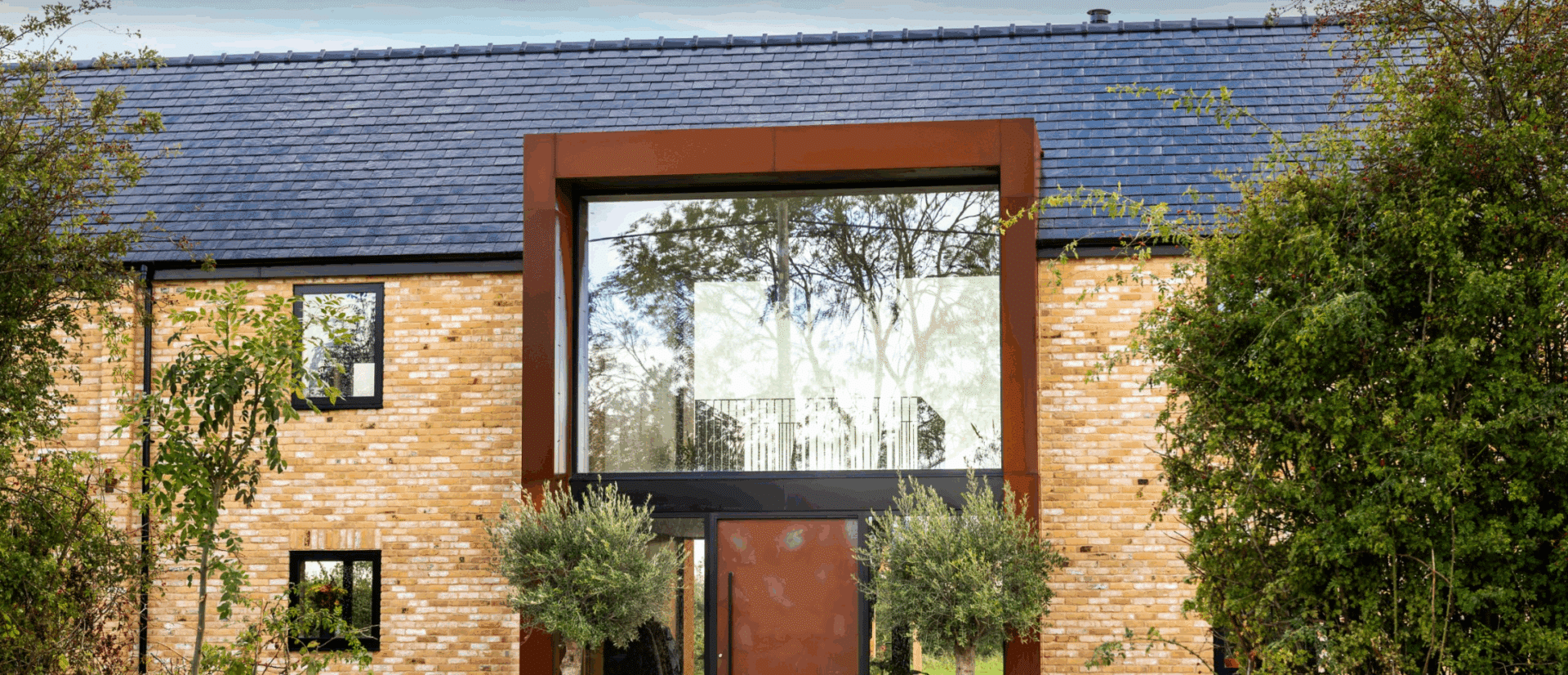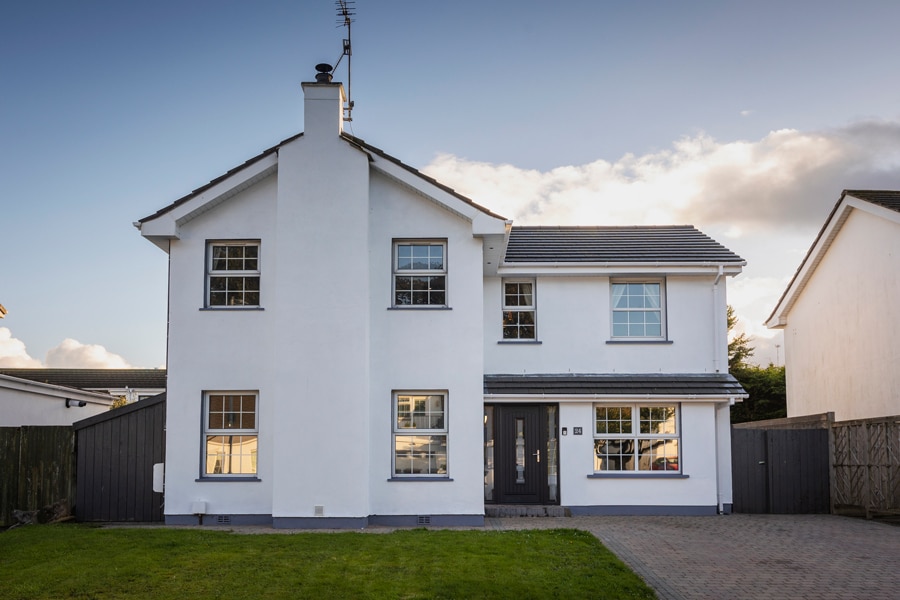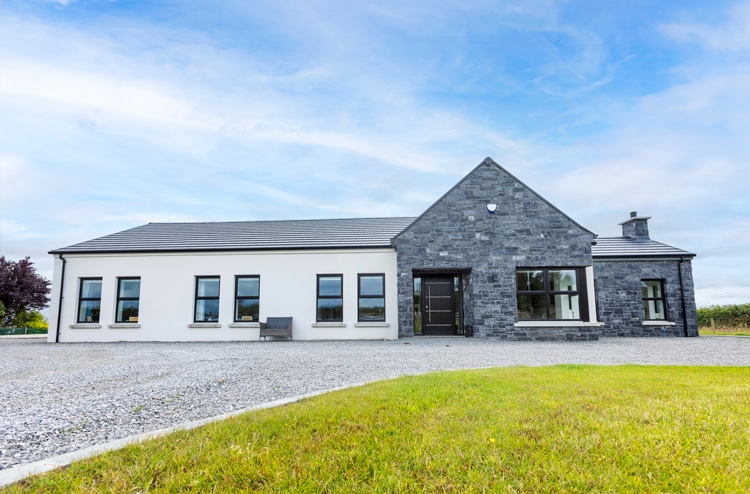What if you or your neighbours disagree with a planning decision made by planners in your local authority; can you lodge a planning appeal?
[adrotate banner=”48″]
In this article we cover:
- How to deal with a refusal of planning permission in NI or ROI
- Difference between first, second, and third party
- First party appeals
- The grounds on which to appeal
- Third party right of appeal
- Appealing the appeal
If your new home or extension is refused planning permission, though you may disagree with the decision, it is often best to revise the project to address the refusal reasons. If this option
has been exhausted, or you don’t want to make revisions to your project to try to convince local planners, then you can make an appeal. This is known as a first party appeal.
Know that if the site had outline permission for a dwelling, on the basis of which you would have applied for full consent (or ‘Reserved Matters’ in NI), and you are not entirely happy with the full consent/permission, unfortunately it is not possible to appeal against any aspects of the decision which were previously dealt with at outline stage.
All appeals are brought to the appeals body, in NI it’s the Planning Appeals Commission (referred to as PAC or the Commission), in ROI An Bord Pleanála (referred to as ABP or the Board).
Whose party is it?
A ‘first party’ is the proposer of the planning application, the ‘second party’ is the planning authority, and the ‘third party’ is an individual or community that objects to the application. Note that there are no third party appeal rights in NI.
First party appeals
In NI applications must be lodged within four months of the date of receipt of the planning authority’s decision (date of receipt of the decision). There are two types of appeal procedures, each with two variations: written representation with an unaccompanied or accompanied site visit, and an informal or formal hearing. Both the planning authority and you as appellant are asked which you would prefer; if one party wishes to have a hearing, the Commission will generally facilitate that route but reserves the right to decide whether it’s formal or informal.
An informal one is better if the issues are relatively straightforward as it can be a more effective and efficient method of gathering information in a less intimidating atmosphere. PAC may also unilaterally decide a hearing is necessary. In most cases it’s generally sufficient to have a written representation, which is the quickest route (in 2016/2017 an average of 20 weeks as compared to 29 weeks for a hearing). The submission of advanced written evidence within specified time limits is required for each procedure.
Check the PAC website for the full checklist which will include a list of documents and relevant maps. The fee is £126 and must be paid within 14 days of the application. You can apply online or post in your application. The case will be evaluated by a Commissioner and may be ruled upon by him/her or by the Commission which will issue a collective decision.
In ROI you must apply within four weeks of the local planners’ decision (not the date it was sent or received). This will include the grounds for appeal along with details of the original application and the fee: €220 to appeal the council’s refusal (or to dispute council contribution conditions) and €660 for retention. The planning appeal checklist is available on An Bord
Pleanala’s website outlining the documents you will need to submit. Optional is the submission of revised drawings and details containing proposed changes, but the Board does not have to accept these unless it chooses to do so.
Any party to an appeal has a right to request an oral hearing, but it would be unusual for one to be held in the case of a single dwelling or extension. The planning appeal will be assessed by an appointed Planning Inspector who will visit the site to make a recommendation to the Board. Board inspectors are independent and cannot be contacted. In the case of a house or extension a three-person board will hear the case and will either decide to accept this recommendation or not. If it does not, it will briefly explain the reason in its written decision.
An Bord Pleanála has a statutory objective of assessing appeals within 18 weeks. Almost one in ten appeals in ROI are considered invalid because they do not comply with statutory criteria.
For instance remember that you must apply in writing and not by email and if instead of posting the appeal you choose to deliver it yourself, do not place it in the letterbox, instead hand it to an employee (but not a security person) between 9.15am and 5.30pm Monday to Friday. Not paying the exact/correct fee at the time of applying will also invalidate your request.
The grounds on which to appeal
The written submission should only include relevant planning points (nonplanning points will be dismissed). NI has a limit of 1,500 words. There is no word limit in ROI. Include all details with your appeal statement – in ROI you are not permitted to clarify, elaborate or submit any part of it at a later date, even within the time limit. You won’t be in a position to clarify, elaborate or make further submissions unless invited to do so.
However in NI there will be an opportunity to respond to the Council’s submission, and if a hearing is involved then some discussion and elaboration will be permitted, although the extent of this will always be at the discretion of the Commissioner. It is important that you address each reason for refusal (or condition under dispute). You need to say why you think the reasons for refusal aren’t justified or why the conditions are not needed. The report of the local planner can explain the basis for decisions and that basis can be questioned. You should examine any policy documents which the planning authority has referred to, as well as any other planning guidance which you think helps build your case.
If there have been any objectors, deal with each issue raised which has not been covered in your response to the planning authorities’ comments. Rather than enter a tit-for-tat argument, rely on planning grounds and quote from relevant policy guidance for your locale.
The appeal will be determined by the Board as though the planning application was submitted to it in the first instance. In both NI and ROI appeals are determined on the basis of the proper planning and sustainable development of the area as well as the effects your planned house would have on the environment. Other material considerations include local development plans, Ministerial and regional planning guidelines.
Third party right of appeal (ROI only)
If your neighbour or other third party doesn’t believe your house or extension should be built, s/he can object in writing to local planners in both ROI and NI. If that decision is appealed in NI third parties can contribute to the process but they themselves cannot initiate or file an appeal with PAC.
In ROI the formal letter acknowledging receipt of an objection to a local planning application gives the objector the right to appeal the decision to An Bord Pleanála. The process is the same as for a first party appeals.
For those who failed to object locally it is also possible to lodge an appeal with the Board but they must be a landowner/ occupier adjoining the application site. In that case, you can apply to the Board for leave to appeal the decision of the planning authority but this may not necessarily be granted.
Appealing the appeal
The only way to overturn the appeal authority’s decision is to challenge it on a point of law. In other words the courts will not adjudicate on the merits of a proposed development from the perspectives of the proper planning and sustainable development of the area and/or effects on the environment, but instead will only deal with ensuring that the decision was made
following procedure and in accordance with the law.
In ROI, you need to apply for judicial review within eight weeks of the decision and in NI you can make a formal complaint to PAC and apply to the High Court for a judicial review within three months of the decision.
Words: Stuart Blakley & Brendan Buck












